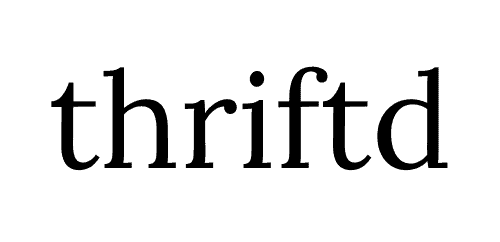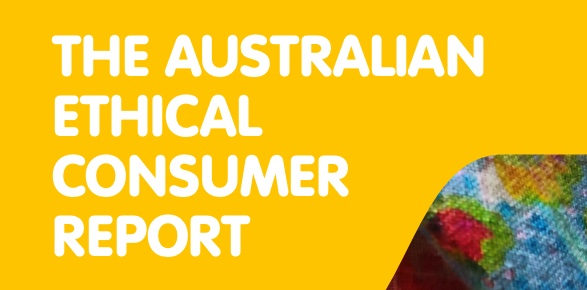In this post, we will provide a summary of the key points and findings from the Australian Ethical Consumer Visualised Report by Baptist World Aid. This report offers valuable insights into the state of ethical consumerism in Australia, highlighting trends and consumer behaviors related to sustainability, corporate social responsibility, and ethical purchasing. Let’s explore the highlights and understand the evolving landscape of ethical consumerism in Australia.
Growing Awareness and Importance of Ethical Consumerism
The report reveals a significant increase in the awareness and importance of ethical consumerism among Australians. More consumers are becoming conscious of the social and environmental impact of their purchasing decisions, with 72% considering ethical factors when buying products or services. This indicates a shift in consumer behaviour towards more sustainable and responsible choices.
Factors Influencing Ethical Purchasing Decisions
Various factors play a role in influencing ethical purchasing decisions. Key considerations include ethical sourcing, environmental sustainability, fair wages and working conditions, and animal welfare. Consumers are increasingly seeking products and services aligned with their values and supporting businesses that demonstrate ethical practices. This shift signifies a growing demand for transparency and accountability in supply chains.
Role of Companies in Driving Ethical Consumerism
Consumers expect companies to take responsibility for their social and environmental impact. Over 80% of Australians believe businesses should be transparent about their ethical practices, and 74% feel it is the responsibility of companies to provide information about their supply chains. This highlights the importance of corporate social responsibility and the need for businesses to align their practices with ethical values to gain consumer trust and loyalty.
Trust and Transparency
Trust is crucial in ethical consumerism. Australians are more likely to trust information about a company’s ethical practices when it comes from independent organizations or third-party certifications. Clear and transparent communication regarding sourcing, labor practices, and sustainability initiatives helps build consumer trust and loyalty. Companies should prioritize transparency in their operations to meet the growing expectations of ethical consumers.
Impact of COVID-19 on Ethical Consumerism
The COVID-19 pandemic has influenced consumer behavior, with 61% of Australians stating that the pandemic has made them more conscious of the ethical implications of their purchases. The crisis has emphasized the importance of supporting local businesses, ensuring fair treatment of workers, and reducing environmental impact. As consumers prioritize the well-being of communities and the planet, businesses need to adapt and integrate ethical practices into their operations.
Barriers to Ethical Consumerism
Despite the growing interest in ethical consumerism, certain barriers exist. Higher prices, limited availability of ethical products, and confusion about the credibility of ethical claims are some of the challenges faced by consumers. Businesses need to address these barriers by offering affordable and accessible ethical options and providing transparent information to alleviate consumer concerns. Collaboration between businesses, government bodies, and consumer organisations can help overcome these obstacles and create a more inclusive and ethical marketplace.
The Rise of Sustainable Fashion
The fashion industry is a significant focus in ethical consumerism. Consumers are increasingly seeking sustainable fashion options, including recycled materials, fair trade practices, and supply chain transparency. This shift presents an opportunity for fashion brands to embrace sustainable practices, reduce their environmental footprint, and cater to the evolving demands of ethical consumers.
Beyond Fashion
Ethical consumerism extends beyond fashion. Consumers are increasingly seeking sustainable and ethically sourced options in food and beverages, personal care products, and household goods. From organic and fair trade food products to cruelty-free cosmetics and environmentally friendly cleaning supplies, consumers are demanding products that align with their values.
Investing in Ethical Funds
Australians are increasingly interested in investing their money in ethical funds and supporting financial institutions that prioritise sustainable and responsible investments. This trend reflects a broader shift in consumer mindset where financial decisions are viewed as opportunities to drive positive change and support businesses that align with their values.
Education and awareness also play a crucial role in promoting ethical consumerism. As consumers become more informed about the impact of their choices, they are better equipped to make sustainable and ethical purchasing decisions. Businesses can contribute to this process by providing clear and accessible information about their ethical practices, sourcing methods, and environmental initiatives. Transparent communication builds trust and empowers consumers to make conscious choices aligned with their values.
The report emphasises the need for collaboration and collective action to drive systemic change. Businesses, government bodies, and consumer organisations must work together to create policies and standards that promote ethical practices across industries. This includes supporting initiatives that advocate for fair wages, safe working conditions, and sustainable production methods. By joining forces, stakeholders can create a more supportive and enabling environment for ethical consumerism to thrive.
Overall, the Australian Ethical Consumer Visualised Report provides valuable insights into the state of ethical consumerism in Australia. The findings highlight a significant shift in consumer behaviour, with more Australians prioritising sustainability, social responsibility, and ethical considerations when making purchasing decisions. This growing awareness presents both challenges and opportunities for businesses to adapt their practices and cater to the evolving demands of ethical consumers.
By embracing transparency, offering accessible and affordable ethical options, and collaborating with stakeholders, businesses can position themselves as leaders in the ethical consumerism movement. Likewise, consumers have the power to drive change by supporting ethical brands, demanding transparency, and making informed choices. Together, we can create a marketplace that values sustainability, fairness, and social and environmental well-being. Let’s embrace ethical consumerism and work towards a better future for all.




